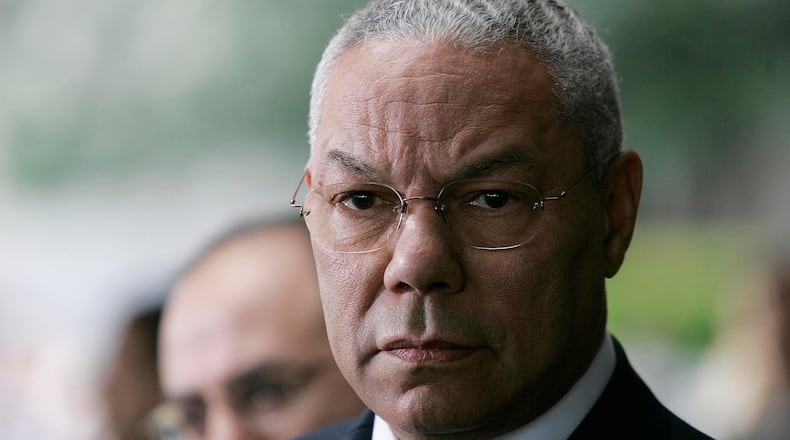Dwight D. Eisenhower, George C. Marshall, Colin Powell and Harriet Tubman are among 87 candidates who have made the cut for the renaming of nine military installations that honor Confederate figures, including Fort Benning and Fort Gordon in Georgia.
The federal Naming Commission announced this week it had narrowed its list of recommendations from the more than 34,000 it had received from the public. It stopped soliciting ideas online Dec. 1 and is preparing to submit its final recommendations to Congress by Oct. 1.
Congress created the commission amid renewed protests for racial justice after the violent deaths of George Floyd in Minneapolis and Ahmaud Arbery in southeast Georgia. The Pentagon is expected to act on the commission’s recommendations by 2024.
America’s military bases, the Naming Commission said on its website, should “appropriately reflect the courage, values and sacrifices of our diverse military men and women, with consideration given to the local or regional significance of names and their potential to inspire and motivate our service members.”
The commission said it visited the military installations and met with military and community leaders last year to learn about their “preferences for new names and an understanding of local sensitivities. Commissioners will engage those same groups via virtual listening sessions in coming weeks before deliberating on final name recommendations.”
Fort Gordon, outside Augusta, is named after John Gordon, who commanded half of Robert E. Lee’s army during the Civil War. Among the recommendations the commission has received to replace Gordon’s name are Eisenhower, Tubman and Union Gen. William Tecumseh Sherman. Sherman did not make the cut, but Eisenhower and Tubman did.
Fort Benning, which sits just outside of Columbus, was named after Henry Benning, a Confederate general. Among the recommendations submitted for renaming Fort Benning were Sgt. 1st Class Alwyn Cashe, who last year became the first African American recipient of the Medal of Honor for actions in Iraq or Afghanistan; Henry Flipper, who became the first Black man to graduate from the U.S. Military Academy at West Point; and Pvt. Felix Hall, a Black soldier who was lynched on the post in 1941.
Cashe made the federal panel’s latest list but Flipper and Hall did not.
Other names associated with Fort Benning that have remained on the panel’s list include: Gen. Marshall, Gen. Powell and retired Col. Ralph Puckett, a Fort Benning hero who received the Medal of Honor last year for conspicuous gallantry during the Korean War.
Hal and Julie Moore are also on the list. Lt. Gen. Moore fought valiantly in the Korean and Vietnam wars and coauthored the bestselling book, “We Were Soldiers Once … and Young.” He is buried at Fort Benning along with Julie, who is known for her unwavering support of military families.
About the Author
Keep Reading
The Latest
Featured



